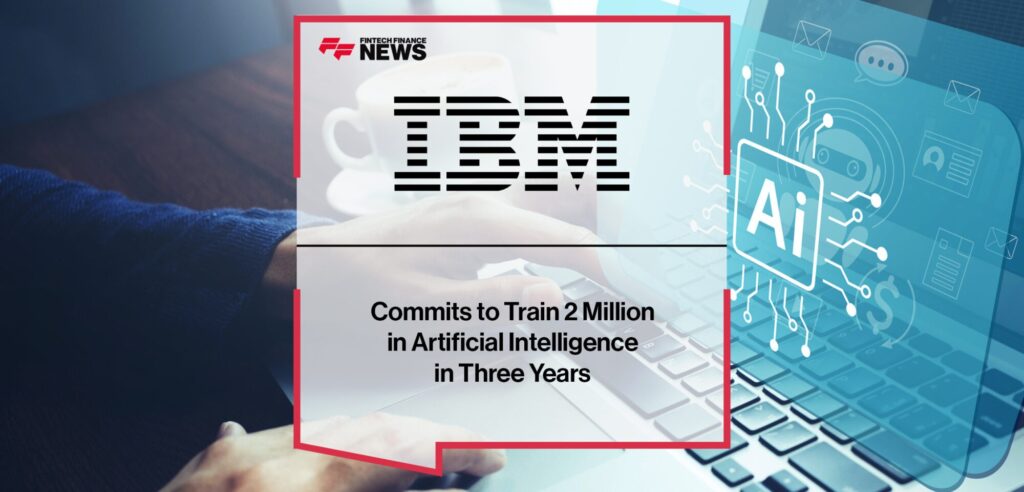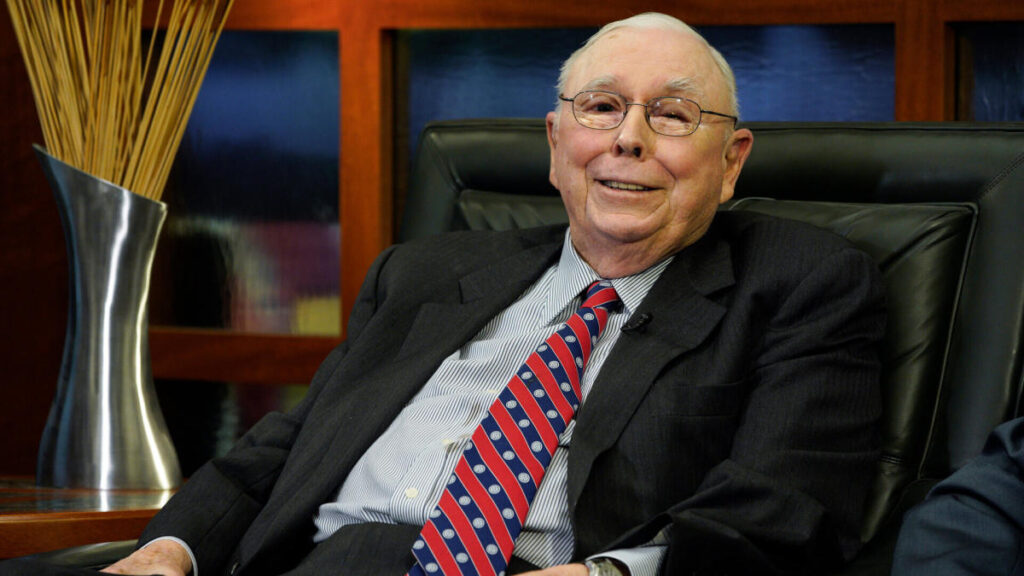Brian Johnson’s AI-Powered Full Body MRI Startup Gets a $21 Million Boost

I am a law graduate from NLU Lucknow. I have a flair for creative writing and hence in my free time work as a freelance content writer.

I am a law graduate from NLU Lucknow. I have a flair for creative writing and hence in my free time work as a freelance content writer.

I am a law graduate from NLU Lucknow. I have a flair for creative writing and hence in my free time work as a freelance content writer.
Anatoly Yakovenko, the co-founder of Solana and CEO of Solana Labs, recently shared his perspective on the importance of Congress regulating cryptocurrency to foster innovation and retain talented entrepreneurs in the United States.

Born under Soviet rule in modern-day Ukraine, Yakovenko moved to America at the age of 11 and has since been a champion for open and accessible technology. Yakovenko’s journey from a young immigrant to a successful entrepreneur mirrors the American dream, but he worries that regulatory hurdles are driving away the next generation of innovators in the blockchain space. In his view, Congress should take proactive steps to create a regulatory framework that both protects consumers and encourages entrepreneurship.
The blockchain revolution has spawned thousands of entrepreneurs with ambitious projects, many of whom are challenging corporate giants in industries like wireless networks, ridesharing, food delivery, and social media. However, building a blockchain company in a compliant manner is a complex and expensive process, dissuading young founders from pursuing their dreams in the U.S.
Yakovenko highlights the alarming decline in the number of open-source blockchain developers in the U.S., dropping from 42% in 2018 to 29% in 2022, emphasizing the urgent need for regulatory clarity to prevent this talent drain.
While acknowledging the need to combat scams and protect consumers, Yakovenko argues that the entire blockchain industry should not be punished for the actions of a few bad actors. Instead, he calls for a regulatory framework that fosters innovation while maintaining American values.
In July, two Congressional committees advanced legislation aimed at creating regulatory frameworks for digital assets and stablecoins, a bipartisan effort that Yakovenko applauds. While these bills may not be perfect, he urges Congress to move forward with them and continue refining the regulatory landscape.
Beyond legislation, Yakovenko emphasizes the importance of government investment in blockchain research and development, citing historical examples of technologies like GPS and the internet that were initially incubated by the U.S. government. He urges policymakers to experiment with blockchain technology and explore ways to harness its potential for public benefit.
Also Read: Intel CEO Says the Chipmaker’s Technology Is Central to AI Boom
Yakovenko concludes by inviting an open conversation between blockchain entrepreneurs and policymakers, advocating for collaboration to shape a regulatory framework that not only protects consumers but also encourages innovation and keeps talented founders building in America.
As the blockchain industry continues to evolve, Yakovenko’s insights underscore the critical role that Congress and government institutions must play in ensuring that the United States remains a hub for technological innovation and entrepreneurship in the digital age.

I am a law graduate from NLU Lucknow. I have a flair for creative writing and hence in my free time work as a freelance content writer.
IBM today declared an initiative to teach two million students in artificial intelligence by the end of the year 2026, having a concentration on neglected areas, to help reduce the worldwide artificial intelligence (AI) capabilities imbalance. To accomplish this objective on a worldwide basis, IBM is offering new generative AI courses via IBM SkillsBuild, extending AI education partnerships with institutions across the world, and working with collaborators to provide AI training to adults worldwide. This will build upon IBM’s current initiatives and platforms for career development to provide improved availability for technical positions and in-demand AI education.

The latest global research by the IBM Institute of Business Value found that CEOs believe that the implementation of artificial intelligence and automation will necessitate the reskilling of forty percent of their employees throughout the next three years, primarily those working in entry-level roles. This serves as another evidence that generative AI is generating a need for new positions and expertise.
“AI skills will be essential to tomorrow’s workforce,” said Justina Nixon-Saintil, IBM Vice President & Chief Impact Officer. “That’s why we are investing in AI training, with a commitment to reach two million learners in three years, and expanding IBM SkillsBuild to collaborate with universities and nonprofits on new generative AI education for learners all over the world.”
finance.yahoo.com
IBM is working with institutions all around the world to develop their AI capabilities by utilizing IBM’s network of professionals. University professors will have a chance to attend IBM-led training, which includes certifications after completion of immersive skilling experiences and lectures. Additionally, IBM will offer course materials, including self-guided artificial intelligence (AI) learning paths, for instructors to utilize in the classroom. IBM will provide students with adaptable and flexible resources, including free online courses in generative AI as well as Red Hat open-source tools, along with academic instruction from academics.
Learners worldwide may have access to AI education through IBM SkillsBuild, which IBM specialists established to deliver the most recent cutting-edge technological breakthroughs.
Also Read: Google Tweaks Ad Auctions to Hit Revenue Targets, Executive Says
IBM SkillsBuild already provides free training in chatbots, the basics of AI, and important subjects like AI ethics. Coursework and improved features are included in the latest generative AI plan.
Along with workshops, expert interactions with IBM coaches along mentors, learning through projects, availability of IBM software, specialized assistance from partners during the learning procedure, and connections to employment prospects, the improved partner edition of IBM SkillsBuild may also contain these features.

I am a student pursuing my bachelor’s in information technology. I have a interest in writing so, I am working a freelance content writer because I enjoy writing. I also write poetries. I believe in the quote by anne frank “paper has more patience than person
In a surprising turn of events, Dave Clark, the Chief Executive Officer of Flexport Inc., is stepping down from his role, making way for the return of the company’s founder, Ryan Petersen.

Clark, who joined Flexport from Amazon.com Inc. just a year ago, cited Petersen’s desire to focus on the core freight business as the reason for his departure.
The announcement came as a shock to many in the tech industry, as Clark had recently posted about his upcoming speaking engagement at a Flexport “exclusive launch event” in Seattle, scheduled for next week. Additionally, Flexport made headlines in May by agreeing to acquire Shopify Inc.’s logistics unit in exchange for a 13% stake in the startup.
Clark’s transition from Amazon to Flexport proved to be challenging, with insiders noting the stark differences between the two companies’ business models. Amazon primarily relies on its website and minimizes direct customer interaction, while Flexport requires a more hands-on approach and personalized engagement with clients. Clark’s resignation followed criticism of his leadership style at Flexport, according to sources familiar with the situation.
Adding intrigue to Clark’s departure, there were reports that he is considering a gubernatorial campaign in Texas. Clark had moved to Texas with his family before leaving Amazon, and he had sparked speculation among colleagues in Seattle about a potential political career.
Flexport, a high-profile startup in the logistics industry, has raised over $2 billion in funding and achieved a valuation of $8 billion. Earlier this year, the company announced a 20% reduction in its workforce, which had approximately 3,000 employees on LinkedIn. Clark and Petersen attributed this move to a decline in shipping volumes after the pandemic-induced surge.
The logistics industry, once buoyed by the pandemic, is now facing challenges in 2023 as shipping capacity exceeds consumer demand, leading to plummeting cargo rates. Oxford Economics even raised concerns about the possibility of a global goods trade recession.
Also Read: TikTok Hires UK Security Firm to Audit European Data Protection
Flexport’s founder, Ryan Petersen, who temporarily stepped away from the company to join the Peter Thiel-backed venture capital firm Founders Fund as a partner, expressed his return with excitement, posting on social media, “I’m back!!!”
Flexport’s significant presence in the industry, combined with the return of its founder as CEO, will undoubtedly be closely watched as the company navigates the evolving landscape of the logistics sector in the post-pandemic era.

I am a law graduate from NLU Lucknow. I have a flair for creative writing and hence in my free time work as a freelance content writer.
In a remarkable display of the power of long-term investing, Charlie Munger, the esteemed business partner of Warren Buffett, has been cashing in on a $1,000 investment he made over six decades ago.

During Berkshire Hathaway’s annual shareholder meeting, Munger disclosed the details of his lucrative oil royalty investment, which now nets him a cool $70,000 yearly, possibly accumulating to over $1 million in total earnings.
The story of Munger’s savvy investment began in 1962 when he crossed paths with a businessman named Al Marshall during a husband-and-wife golf tournament. At the third hole, Marshall divulged his plan to participate in a local oil royalty auction. Munger, known for his candidness, immediately offered his perspective, stating, “You’re doing it all wrong.”
Munger didn’t stop at offering advice; he joined Marshall’s bid, bringing his expertise to manage the intricate legal and financial aspects of their purchases. His investment was structured using an ABC trust, a tax shelter that has since been prohibited.
Marshall, reflecting on the investment, revealed in Janet Lowe’s book, “Damn Right!: Behind the Scenes with Berkshire Hathaway Billionaire Charlie Munger,” “We only put up $1,000 each and we’ve each probably made a half a million out of it.”
Munger himself corroborated the story during Daily Journal’s shareholder meeting in 2016, shedding light on the unusual dynamics of the oil royalty market. “I soon realized that under the peculiar rules of an idiot civilization, the only people who were going to bid for these oil royalties were oil royalty brokers, who were a scroungy, dishonorable, cheap bunch of bastards who realized that nobody would ever bid at their price,” he quipped.
While the exact annual income from these royalties might vary—ranging from $70,000 to $100,000—Munger’s substantial earnings over the years are undeniable. This passive income stream partly explains why Munger has accepted a modest $100,000 salary from Berkshire Hathaway for many decades. Furthermore, he maintains most of his approximately $2 billion fortune in Berkshire stock, which doesn’t pay dividends.
Read more: A Paper Boy Surviving At $3 A Day: How This US Entrepreneur Turned Millionaire At 23
Warren Buffett added another intriguing layer to the story during the same shareholder meeting. He disclosed that Munger isn’t the only one benefiting from age-old oil royalties within their circle. Buffett’s own father invested $1,000 to $1,500 in similar royalties before his passing. Today, these royalties are held by Buffett’s younger sister, who continues to receive monthly checks, reinforcing the enduring appeal of such investments.
Charlie Munger’s journey from a $1,000 investment to a consistent annual income of $70,000 exemplifies the remarkable potential of long-term investments and the power of compounding. It serves as a valuable reminder that in the world of finance, patience and astute decision-making can yield incredible rewards over time.